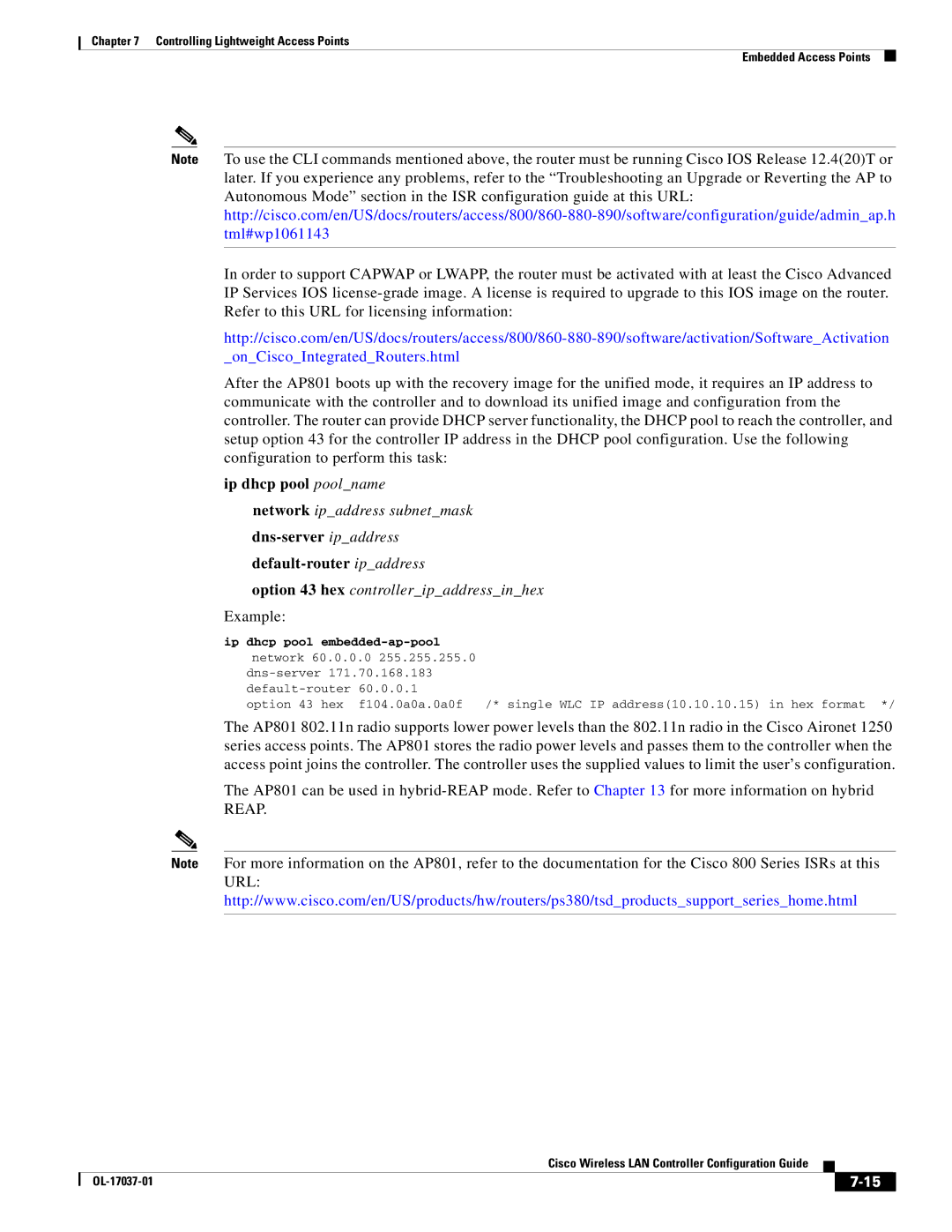
Chapter 7 Controlling Lightweight Access Points
Embedded Access Points
Note To use the CLI commands mentioned above, the router must be running Cisco IOS Release 12.4(20)T or later. If you experience any problems, refer to the “Troubleshooting an Upgrade or Reverting the AP to Autonomous Mode” section in the ISR configuration guide at this URL:
In order to support CAPWAP or LWAPP, the router must be activated with at least the Cisco Advanced IP Services IOS
After the AP801 boots up with the recovery image for the unified mode, it requires an IP address to communicate with the controller and to download its unified image and configuration from the controller. The router can provide DHCP server functionality, the DHCP pool to reach the controller, and setup option 43 for the controller IP address in the DHCP pool configuration. Use the following configuration to perform this task:
ip dhcp pool pool_name
network ip_address subnet_mask
dns-server ip_address
default-router ip_address
option 43 hex controller_ip_address_in_hex
Example:
ip dhcp pool embedded-ap-pool
network 60.0.0.0 255.255.255.0
option 43 hex f104.0a0a.0a0f /* single WLC IP address(10.10.10.15) in hex format */
The AP801 802.11n radio supports lower power levels than the 802.11n radio in the Cisco Aironet 1250 series access points. The AP801 stores the radio power levels and passes them to the controller when the access point joins the controller. The controller uses the supplied values to limit the user’s configuration.
The AP801 can be used in
Note For more information on the AP801, refer to the documentation for the Cisco 800 Series ISRs at this URL: http://www.cisco.com/en/US/products/hw/routers/ps380/tsd_products_support_series_home.html
|
| Cisco Wireless LAN Controller Configuration Guide |
|
| |
|
|
| |||
|
|
|
| ||
|
|
|
| ||
